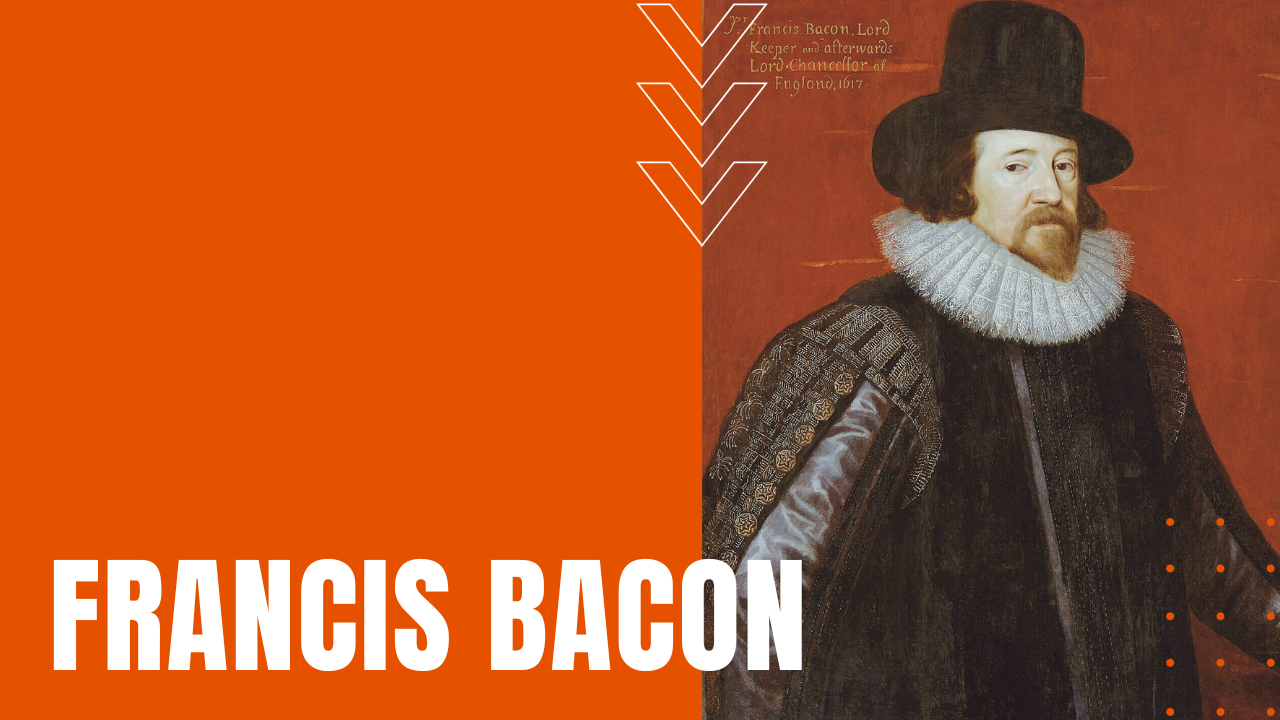Francis Bacon

Born into an aristocratic family in 1561 London England, Francis Bacon attended Trinity College Cambridge at the tender age of twelve, graduating in two years before enrolling in Gray’s Inn law school, which initially bored him to tears. Suffering from insufficient finances and heavy debt for the entirety of his life, by age twenty, Bacon landed a job in the House of Commons, which allowed him to complete his law degree at Gray’s Inn.
A Life in Politics
Appointed outer barrister in 1582, two years later, his political career galvanized when he wrote A Letter of Advice to Queen Elizabeth, propelling him into a four-decade career in Parliament. Knighted by King James I in 1603, Bacon became solicitor general in 1607, followed by attorney general, a member of the Privy Council, Lord Keeper of the Great Seal and ultimately Lord Chancellor, one of the highest political offices in Great Britain.
Publicly Disgraced
Appointed Viscount St. Albans in 1621, his political enemies in Parliament accused Bacon of accepting bribes, leading to his trial and conviction that same year. Fined 40,000 pounds, Bacon served four days in the Tower of London, before retiring from public life in ill health, focusing the remainder of his life on his other passion—scientific discovery.
Father of Empiricism
Now known as the father of empiricism, Bacon shunned the longstanding scientific doctrines of Aristotle and Plato, developing a new model for applied science that focused on tangible evidence based on experimentation, the analysis of gathered data and the reproducibility of results. Believing since childhood that science could be harnessed as a tool for the betterment of mankind, Bacon proposed the notion that all the mysteries of the known universe could be solved through examined experimentation, claiming that his empirical scientific method would, in his words, “eventually disclose and bring into sight all that is most hidden and secret in the universe.”
Multiple Advancements in Science
Publishing Book One of Novum Organum Scientiarum or the “new method” in 1620, Bacon introduced new terminology into scientific study, including the “Table of Presence,” “The Table of Absence in Proximity,” the “Table of Comparison” and the “ladder of axioms,” establishing himself as a leading figure in the philosophy of science, at the same time publishing a wide range of essays and a work of utopian fiction. He passed away from pneumonia on April 9th, 1626, after studying the effects of ice on the preservation and decay of meats, making Sir Francis Bacon, a groundbreaking pioneer in the birth of modern science.
